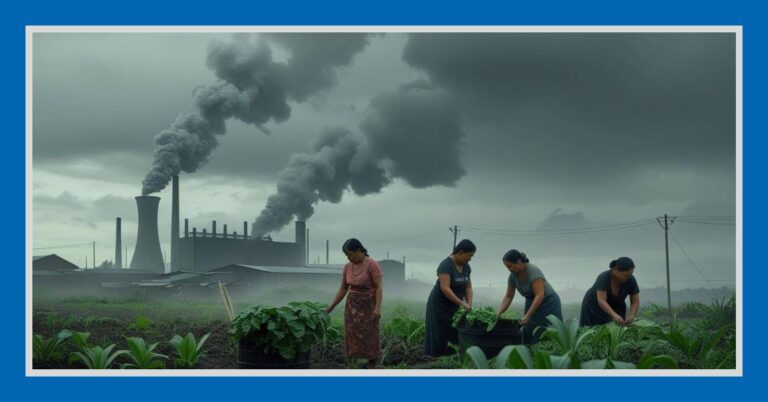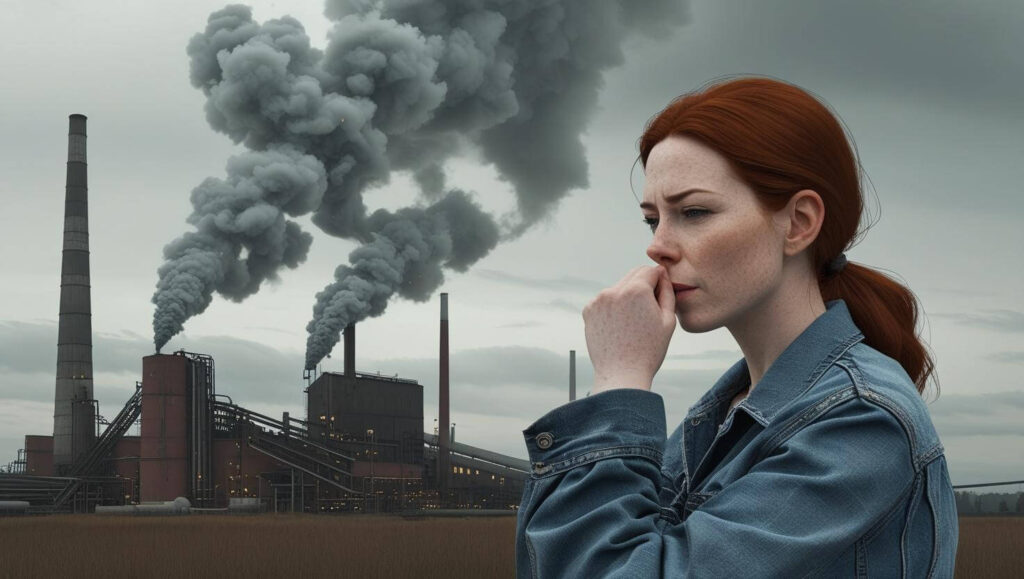
Industrial Air Pollution: An Environmental Challenge Thailand Must Face
by Peemanus Tongpiem / August 29, 2025
Industrial air pollution is one of the leading causes of environmental problems in Thailand. Areas with dense clusters of factories such as Samut Prakan, Rayong, Chachoengsao, and major industrial estates are particularly affected. Factory emissions not only degrade air quality but also impact public health, the economy, and long-term environmental sustainability.
Despite government regulations and environmental laws, the problem persists—and in many cases, it’s worsening. This article explores the causes, impacts, and solutions to industrial air pollution, as well as how both individuals and businesses can help mitigate the crisis.
What is Industrial Air Pollution?
Industrial air pollution refers to the release of gases, chemicals, or particulate matter into the atmosphere from factory processes. Common pollutants include:
- Carbon monoxide (CO): Produced from incomplete combustion.
- Sulfur dioxide (SO₂): Emitted from burning fossil fuels.
- Nitrogen oxides (NOx): Contributing to ozone formation and smog.
- Volatile organic compounds (VOCs): Toxic chemicals harmful to health.
- Particulate matter (PM2.5 and PM10): The most concerning pollutants in many industrial areas.
These pollutants raise the Air Quality Index (AQI) and contribute to what has become a silent but deadly threat.
Main Causes of Industrial Air Pollution
- Fossil Fuel Consumption
Many factories still rely on coal, heavy fuel oil, or natural gas, all of which emit high levels of toxic gases and particulate matter. - Outdated Machinery and Poor Maintenance
Factories using old machinery without proper filtration systems release excessive pollutants. - Improper Waste Management
Some industries burn waste or chemicals without proper treatment, releasing hazardous byproducts. - Weak Enforcement of Regulations
Although environmental laws exist, inspections and enforcement remain inconsistent and limited.
Health Impacts of Factory Emissions

According to the World Health Organization (WHO), air pollution is responsible for over 7 million premature deaths worldwide each year. The health impacts of factory emissions can be categorized as follows:
- Short-term effects: Eye irritation, coughing, difficulty breathing, dizziness.
- Long-term effects: Chronic respiratory diseases, heart disease, lung cancer, and allergies.
- Vulnerable groups: Children, the elderly, and people with pre-existing conditions.
Environmental Consequences

Beyond human health, industrial emissions have widespread environmental impacts:
- Acid rain: Damages soil, water, and infrastructure.
- Ecosystem imbalance: Harms wildlife and biodiversity.
- Agricultural damage: Reduces crop yields.
- Reduced visibility: Affects tourism and local economies.
Laws and Regulations in Thailand
Thailand has implemented several laws and policies to control industrial emissions, including:
- Environmental Quality Promotion and Conservation Act (1992).
- Emission standards set by the Pollution Control Department.
- Monitoring and reporting requirements for greenhouse gases.
However, enforcement remains a major challenge.
Solutions and Preventive Measures
At the Industrial Level
- Install dust and gas filtration systems such as Electrostatic Precipitators (ESP) and scrubbers.
- Switch to renewable energy sources like solar or biomass.
- Upgrade to modern machinery and cleaner technologies.
At the Individual Level
- Use air purifiers at home to protect against PM2.5.
- Monitor air quality through an air quality monitor.
- Avoid activities that worsen pollution, such as burning trash.
At the Policy Level
- Stricter inspections and enforcement of emission standards.
- Incentives for industries to adopt clean energy.
- Transparent pollution reporting systems accessible to the public.
Role of Communities and Citizens
Communities near factories can play a vital role by:
- Filing complaints when emissions exceed safety standards.
- Collaborating with local environmental organizations.
- Advocating for stricter government policies and accountability.
Bottom Line
Industrial air pollution and factory emissions are complex challenges that affect health, the economy, and the environment. Addressing this problem requires cooperation among industries, government, and the public.
As individuals, we may not be able to stop factories from releasing emissions directly, but we can protect ourselves by using high-quality air purifiers, monitoring AQI levels, and reducing our own contribution to air pollution.
By combining policy changes, technological improvements, and public participation, Thailand—and the world—can move closer to a cleaner and healthier future.

Peemanus Tongpiem
เราให้ความสำคัญกับอาหารที่เรารับประทาน 3 มื้อต่อวัน แต่เรากลับละเลยอากาศที่เราใช้หายใจมากกว่า 10 ครั้งต่อนาที เป็นเหตุให้ผมเริ่มค้นคว้าและเผยแพร่ความรู้เรื่องมลพิษทางอากาศ เพื่อให้ผู้คนตระถึงความสำคัญของการใช้เครื่องฟอกอากาศเพื่อสุขภาพที่ดีขึ้น







